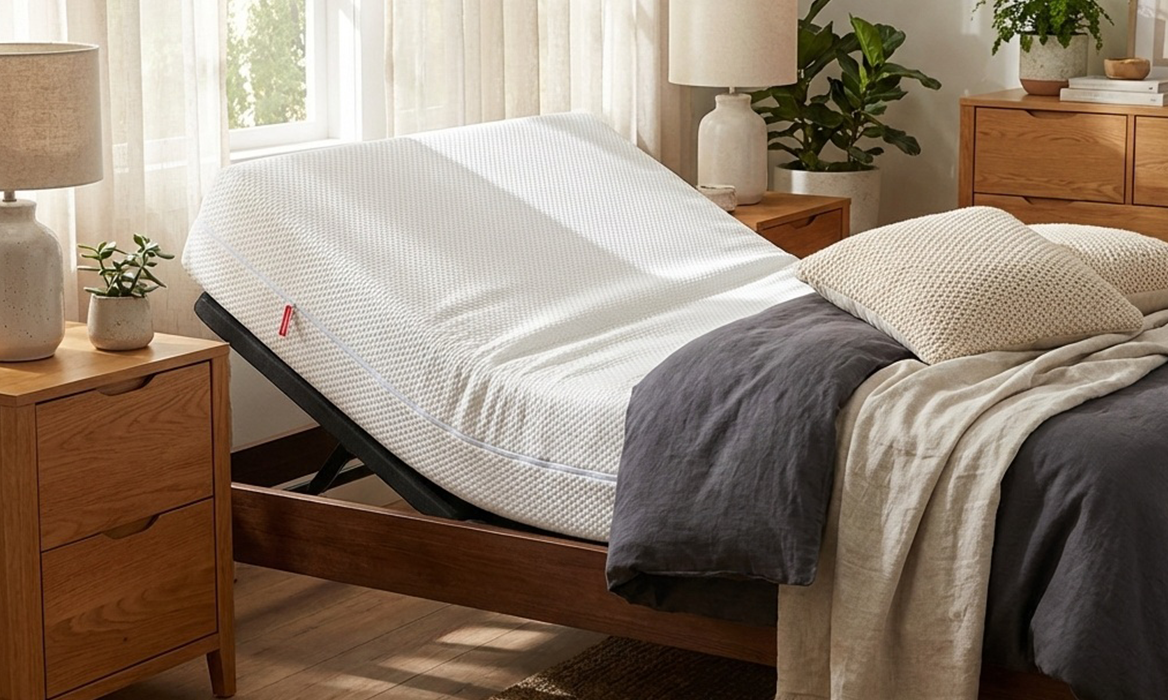Published by Mercado do Mattress on 14th Jul 2025
Sleep: Frequently Asked Questions and Tips for Better Sleep
Many people still have doubts about what really influences the quality of their sleep: from daily habits to choosing the ideal bed. Sleeping well is not a luxury - it's a vital necessity for body and mind.
In this article, we've collected the most frequently asked questions about sleep and answered them in a clear and practical way. We also explore the different types of rest, common disorders, phases and functions, among other crucial points for your rest.
Frequently asked questions about sleep
Definition of sleep
The World Health Organization defines sleep as an essential physiological state, characterized by a reversible loss of consciousness, with organized brain activity, whose main function is to guarantee the body's physical, mental and emotional balance. The WHO recognizes sleep as one of the pillars of health, alongside diet and physical activity.
Types of Sleep
There are two main types of sleep: REM (Rapid Eye Movement) and NREM (Non-Rapid Eye Movement).
- NREM sleep consists of three stages of increasing depth.
- REM sleep, normally associated with dreams, is essential for emotional balance and memory consolidation.
How many hours should I sleep each night?
Ideally, you should sleep between 7 and 9 hours a night, depending on your age, activity level and individual needs. The quality of sleep is just as important as its duration. Chronic poor sleep can affect the immune system, memory and even mood.
Sleep functions
Sleeping well is essential:
- Physical and muscular recovery
- Consolidation of memory and learning
- Regulation of the immune system
- Hormonal and emotional balance
It is during rest that the body regenerates and prepares for the next day.
Sleep phases
Sleep occurs in cycles made up of several phases:
Phase 1 - Transition between wakefulness and sleep
Phase 2 - Light sleep
Phase 3 - Deep sleep (essential for physical recovery)
REM sleep - Intense brain activity, associated with dreams and memory consolidation
Each cycle lasts around 90 minutes and is repeated several times throughout the night.
Ideal hours of deep sleep by age
Deep sleep tends to decrease with age. On average:
- Babies: 3 to 4 hours of deep sleep per night
- Children: 2 to 3 hours
- Adults: 1.5 to 2 hours
- Elderly: 1 to 1.5 hours
It is important to ensure ideal conditions (suitable mattress, quiet environment, absence of light and noise) so that this phase is as restorative as possible.
Sleep disturbances
Sleep disorders are increasingly common. The most common include
- Insomnia (difficulty falling asleep or staying asleep);
- Sleep apnea (temporary cessation of breathing);
- Restless legs syndrome;
- Sleepwalking or parasomnias.
These disorders can seriously affect quality of life and should be assessed by a health professional.
How to sleep better at night?
Sleeping well at night depends on several factors: a quiet environment, a regular routine, a comfortable mattress and good sleep hygiene. Avoiding screens before bed, heavy meals and bright light can significantly improve the quality of your night's rest.
Does the mattress influence sleep?
Yes, the mattress plays a fundamental role in the quality of your rest. A good mattress provides adequate support for the spine, relieves pressure points and reduces night-time movements. To find out exactly what type of mattress best suits your needs, we recommend reading our detailed article on How to Choose the Ideal Mattress.
Do you want to improve the quality of your sleep? At Mercado do Colchão you'll find everything you need to sleep better at night - mattresses adapted to your body, beds with storage and accessories that turn your bedroom into a haven of rest.









